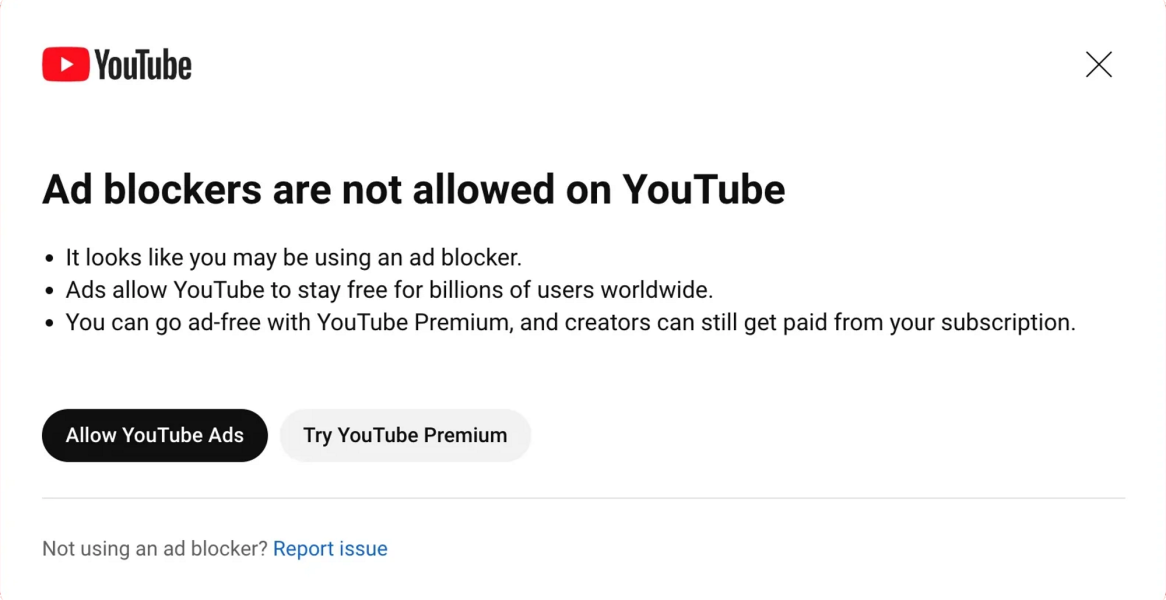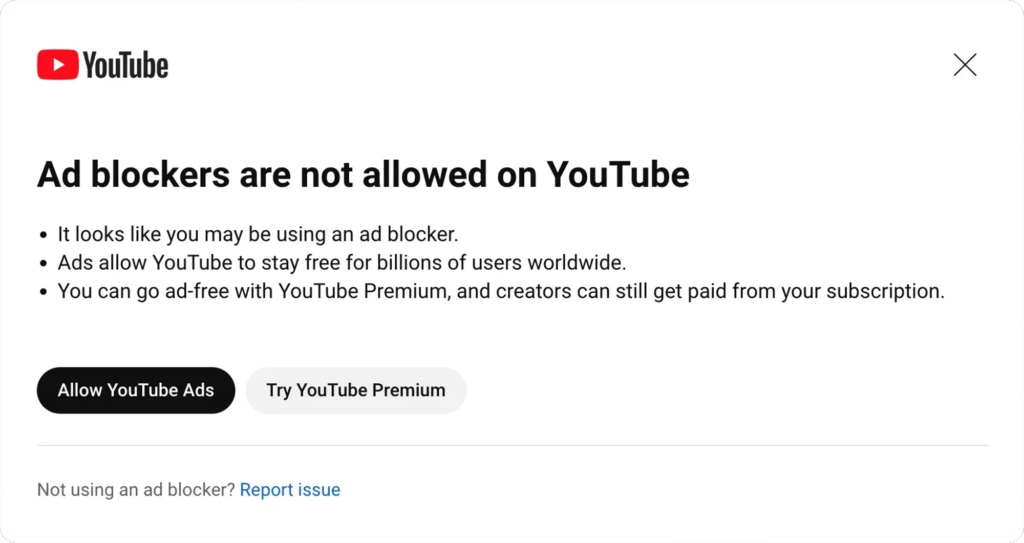In a significant move to combat ad-blocker usage on its platform, YouTube has launched a global initiative aimed at curbing the practice that violates its Terms of Service.

Image Source: techspot.com
The video streaming giant began experimenting with this approach back in June, when it started displaying warning messages to users who employed ad-blockers while viewing content. These messages informed users that if they continued using ad-blockers, their access to the video player would be restricted after viewing just three videos. This initial experiment has now escalated into a full-scale campaign, as YouTube seeks to ensure that users either purchase a YouTube Premium subscription or allow ads to play during their viewing experience.
User Reactions and the Growing Irony of Ad Blockers on YouTube
The initiative has not gone unnoticed by the YouTube community, with numerous users taking to the r/YouTube subreddit to express their concerns and experiences. Many Redditors were quick to point out the irony of YouTube cracking down on ad-blockers while allowing advertisements related to ad-blockers on its service. This juxtaposition has sparked debates about the platform’s commitment to user experience and revenue generation. Users are left questioning the platform’s motives as it promotes anti-ad-blocker ads while penalizing those who employ ad-blockers.
YouTube, however, has not provided specific details regarding the extent of restrictions imposed on users employing ad-blockers in this experiment. In a statement, the company simply reiterated that the use of ad-blockers violates YouTube’s Terms of Service, leaving room for users to speculate about potential consequences.
YouTube’s pursuit of increased revenue and a broader user base is evident in its diverse strategies. The platform currently boasts 80 million paid users across its Music and Premium tiers. Nevertheless, YouTube’s parent company, Google, continues to experiment with alternative methods to bolster its user numbers. Some of these tests include prompting users to pay for access to videos in 4K resolution or subjecting them to multiple unskippable ads for an uninterrupted viewing experience. These endeavors indicate the company’s determination to strike a balance between user satisfaction and revenue generation.
As YouTube tightens its stance on ad-blocker usage, it remains to be seen how the community will react and whether these measures will succeed in pushing users toward YouTube Premium subscriptions or encourage them to tolerate advertisements during their video consumption. The evolving landscape of ad-blocker usage on YouTube underscores the ever-present tension between platform profitability and user preferences in the online video streaming industry.

I am a law graduate from NLU Lucknow. I have a flair for creative writing and hence in my free time work as a freelance content writer.
